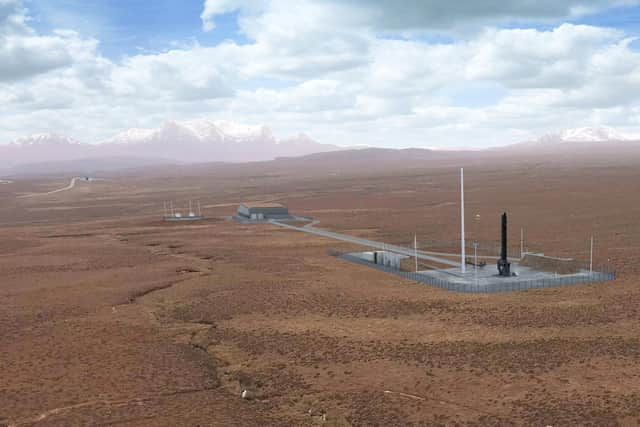Fears raised over space tourism as researchers warn rocket blasts could undo ozone recovery and drive global warming
US researchers have analysed the impact of rocket launches and re-entries in 2019 and calculated the impact of projected space-tripper operations.
They found black carbon particles emitted by rockets are almost 500 times more efficient at holding heat in the atmosphere than all other sources of soot from surface activities and regular aeroplane traffic combined, causing enhanced climate impacts.
Advertisement
Hide AdAdvertisement
Hide AdThe study, by scientists at the University of Cambridge and Massachusetts Institute of Technology, showed the current loss of total ozone caused by spacecraft is small.
However, current growth trends around space tourism – as demonstrated by headline-grabbing launches by billionaire entrepreneurs such as Jeff Bezos, Elon Musk and Richard Branson – could cause damage to the upper layer over the Arctic in spring.
This is because pollutants from solid-fuel rockets and re-entry heating of returning craft and debris are particularly harmful to stratospheric ozone, according to the researchers.
They say the findings are worrying and authorities must carefully manage the emerging sector.


Results were based on information on chemicals released from all 103 worldwide rocket launches in 2019, as well as data on reusable rocket and space junk re-entry.
The team also calculated the impact of recent demonstrations and future space tourism plans from Virgin Galactic, Blue Origin and SpaceX, assessing the impacts of the fuel used in rockets and levels of emissions from regular flights.
They concluded that daily or weekly tourism take-offs could damage the stratospheric ozone layer and threaten to undermine the recovery experienced since a global ban on ozone-depleting substances was implemented in 1987 – the Montreal Protocol is considered one of the most successful international environmental policy interventions.
Study leader Dr Robert Ryan said: “The only part of the atmosphere showing strong ozone recovery post-Montreal Protocol is the upper stratosphere, and that is exactly where the impact of rocket emissions will hit hardest.
Advertisement
Hide AdAdvertisement
Hide Ad“We weren’t expecting to see ozone changes of this magnitude, threatening the progress of ozone recovery.
“There is still a lot we need to find out about the influence of rocket launch and re-entry emissions on the atmosphere – in particular, the future size of the industry and the types and by-products of new fuels like liquid methane and bio-derived fuels.
“This study allows us to enter the new era of space tourism with our eyes wide open to the potential impacts.
“The conversation about regulating the environmental impact of the space launch industry needs to start now so we can minimise harm to the stratospheric ozone layer and climate.”
Scotland is experiencing its own space race, with spaceports planned for five locations across the country and a burgeoning satellite and rocket tech industry.
Several landmark launches and tests have already taken place. A rocket fired from a military missile test site in the Western Isles in 2016 became the first vehicle to be launched into space from UK soil.
Launchpads are proposed for Unst in Shetland; North Uist in the Western Isles; Machrihanish in Argyll; the Moine peninsula in Sutherland; and Prestwick Airport in Ayrshire.
The Sutherland project aims to create the world's first carbon-neutral space hub on working croft land.
Comments
Want to join the conversation? Please or to comment on this article.
